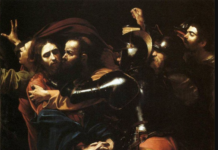By Mark Ellis

Dag Heward-Mills was born in the UK to a Ghanaian lawyer and Swiss mother, but grew up along the coast of Ghana where he gave his life to Jesus Christ as a teenager.
While still in medical school, he answered a call into ministry and began holding meetings in vacant classrooms at the school. These meetings became the nucleus of the first Lighthouse Chapel, which has grown exponentially to over 1200 churches in 60 countries under his leadership.
In his new book, Loyalty & Disloyalty (Carpenter’s Son Publishing) Heward-Mills identifies a qualification for church leaders and their flock that is vital, but often overlooked: loyalty.
Heward-Mills gave up his medical career to serve the Lord, but early in his ministry, he saw firsthand the destructive nature of disloyalty, which often began with the quiet rumble of gossip, murmuring, and criticism directed toward his leadership as a youthful pastor.
“Is he really called?” some in his church asked.
“Can a medical student be a pastor?” others wondered aloud.
Some thought he moved around too much behind the pulpit when he preached. A few thought he used too much Scripture in his sermons. Others thought he used too little.
As some of these comments made their way to him, he got so nervous prior to his weekly services he frequently had diarrhea from Saturday night to Sunday morning.
“It almost wiped me out,” Heward-Mills recalls. “This critical atmosphere almost broke up my fledgling church.”
He notes that early in the Scripture, God reveals his disdain for a critical spirit, when Miriam is struck with leprosy after she and Aaron criticized Moses.
Heward-Mills describes a particularly dangerous stage of disloyalty, which he identifies as the “political” stage, when a disgruntled person begins to gather a following.
David’s son Absalom became unduly critical of his father’s policies and began to involve others in his disloyal scheming. “Disloyal people have an insidious way of discussing the shortcomings of their leaders,” he notes. “They complain and criticize behind the scenes.”
“My 20 years in ministry have brought me face-to-face with loyal and disloyal people,” Heward-Mills says. He feels the subject of loyalty is often an overlooked teaching in the church, but one pastors ignore at their own peril.
The book offers five keys to shaping a culture of loyalty within the church, how to recognize the stages of disloyalty, and how to use a cleansing “north wind” to calm divisive storms that threaten to undermine a church.
“Only through God’s undeserved grace can I share my passion to see His church flourish,” Heward-Mills says. “Through His guidance, I want to give other pastors a chance to get on board and experience the blessings that authentic loyalty can truly bring.”




God bless this pastor for persevering in the ministry despite the often unfair complaints from his flock. . . the comments in the post about having a critical spirit are spot on. Have not read the pastor’s book, and the post is somewhat confusing in that it first refers to loyalty as a qualification of leaders but then talks about the disloyalty of believers to the pastor, or loyalty as a qualification of the flock. While we are called to be eager to maintain the unity of the Spirit in the bond of peace, and to remember and submit to those who speak the word of God and leaders who watch over our souls, and to hold them up so that they can do this with joy, the pastor’s desire of loyalty to himself seems misplaced as being of a merely personal nature. Maybe a call for greater loyalty and faithfulness to the Lord and that the love of the body in Christ to increase more and more to enemies, neighbors and each other would get him the same result he longs for.
Those are very powerful words, Alan. Just like you I have a great honor and respect for God’s servants everywhere, but a person like myself has a very real struggle with a leader who call for loyalty to himself especially because I have already spent 30 years of my life in a Cult – totally devoted to a man whom I still believe is a man of God, but the devotion totally misplaced, and the movement nothing short of man-worshipping cult. Is there a church someone in the UNIVERSE where they preach loyalty to Christ, and it all ends there? Where the pastor is not trying to recruit you when you’re visiting, and a church that places being alive in God far above being a member of their congregation? Another question: Would sheep matter as much to pastors if money was not in the equation?
@Alan, I think it pays to read the book, because I have and this article does not do justice. Loyalty as described in 1 Cor. 4:1-2 is a requirement for every steward of God. As Christians we need to be loyal not only to our pastors but to our spouses, children, employees etc. In every facet of a Christians life loyalty or faithfulness is the prescribed ingredient that must exist for us to be able to stay together and build. This requirement is not personal in nature as Our loyalty must first be to God and then to one another, but how can one be loyal to God who he has not seen and disloyal to man whom he has seen. I believe Bishop Dag has also proved his loyalty in many situations described in the book, however any pastor who will be willing and able to receive the teaching and will also teach his flock will see the great blessing that comes when we are truly together as the body of Christ is supposed to be.
I am willing to get you a free copy to read if you want just email me: niino.qt@outlook.com
I pray you are blessed by the reading of Loyalty and disloyalty just as I have.
thank you very much for this message on loyalty, this message apply to all instiutions,fro home, church,work and community,our children need to be taught about loyalty even at schools,. please kindly write a book for children which can be used at homes and schools.
women need to be loyal to their own husbands and this seem to be ignored. thank you very much for the message
Comments are closed.